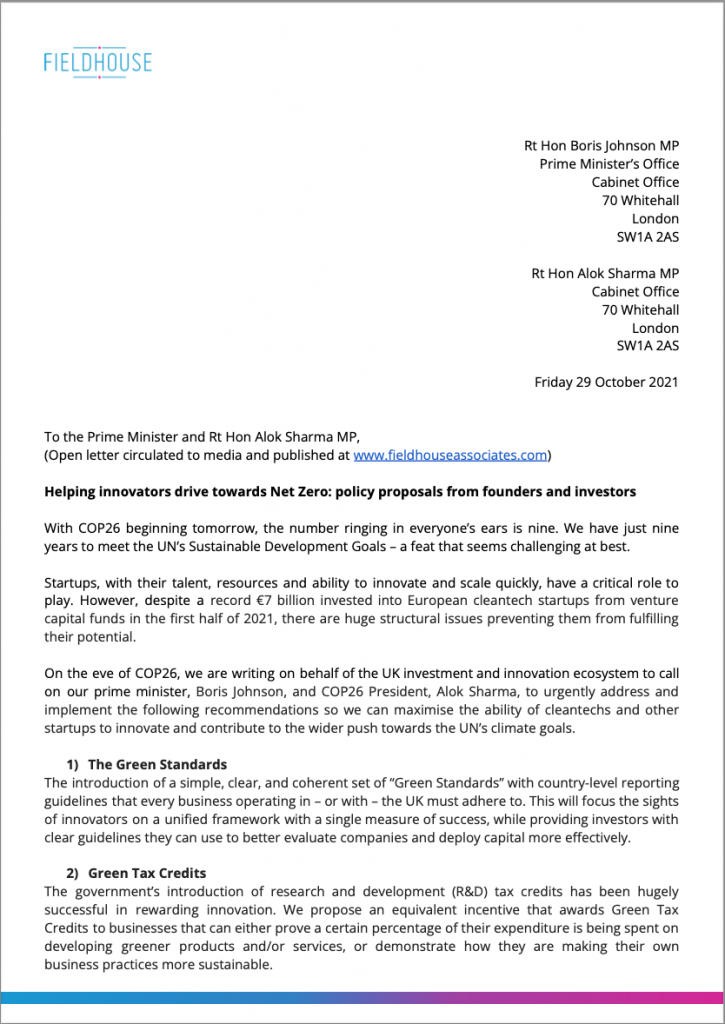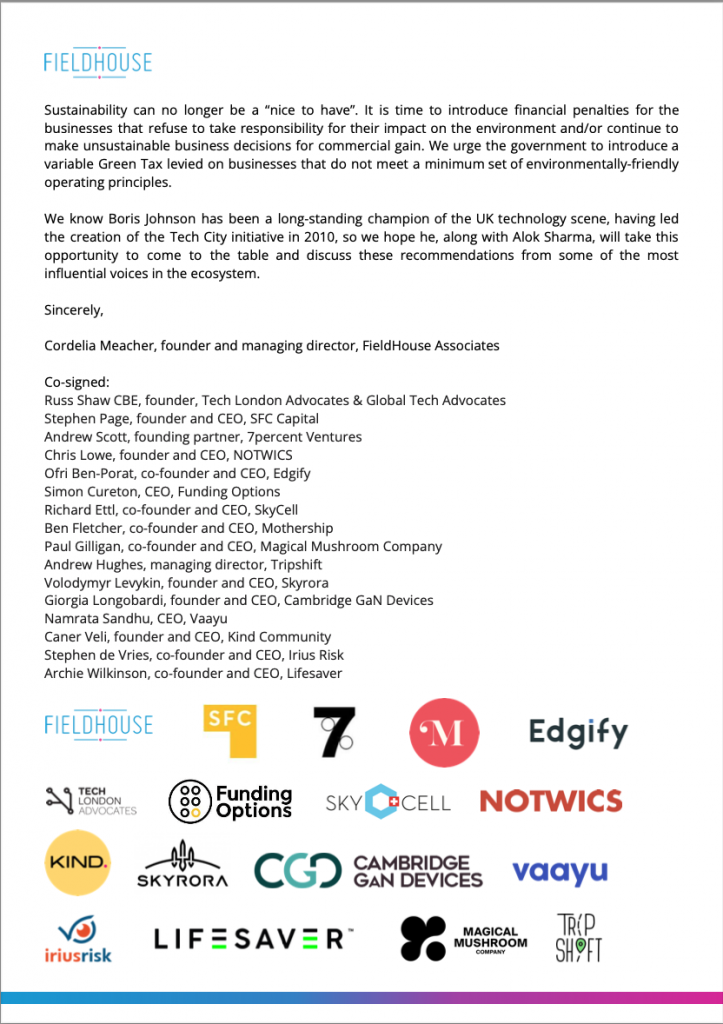As COP26 loomed large on the horizon in recent weeks — and fears grew that it might amount to little more than a damp squib — here at FieldHouse we decided to mobilise our clients and contacts across the innovation and investment ecosystem to give Prime Minister Boris Johnson and COP26 President Alok Sharma a timely nudge.
Now, with COP26 kicking off over the weekend, on the eve of the conference we are issuing a call to action, based on conversations we’ve had in recent weeks with various startups, investors, and other key ecosystem figures that are either actively involved in developing products and solutions with a sustainability focus or simply concerned that urgent action is taken to move things in the right direction.
Our open letter – sent to Johnson and Sharma, published here, and reproduced below – outlines three simple measures that would help disruptive companies compete on a more level playing field and take some leadership in the UK’s moves towards achieving its Net Zero goals:
- Unified green standards — to put all companies on the same footing and give startups innovating in sustainability, energy, and related sectors something universal and Government-backed to aim for;
- Green tax credits — replicating the existing R&D tax credit to reward businesses making demonstrable investment in either a) developing products/services that advance sustainability, or b) making their own operations more sustainable;
- A green tax — to penalise companies that don’t take responsibility for reducing their impact, make unsustainable decisions for commercial gain, or fail to meet universal green standards.
We’d like to thank everyone who contributed to or signed the letter, and will be sure to publish any updates as they arise.
Here’s hoping for a productive and impactful COP26!






